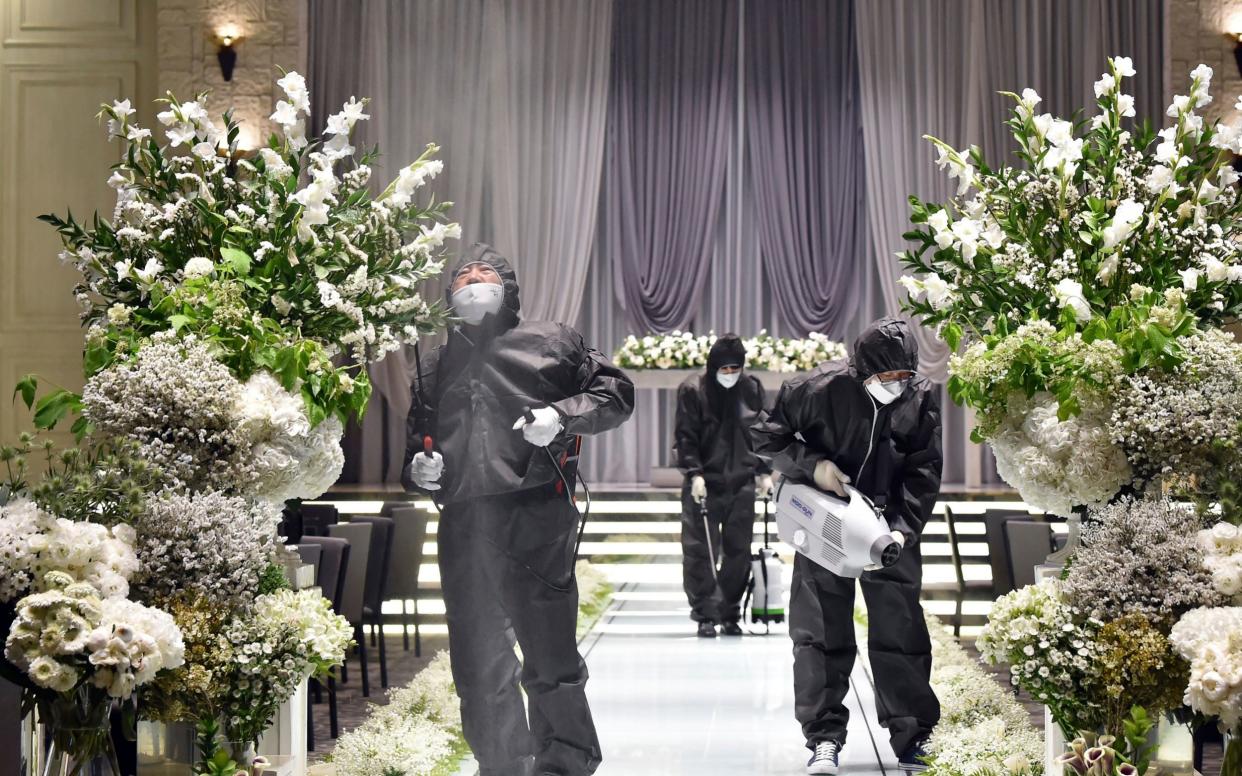South Korea struggles to stamp out new coronavirus clusters

South Korea, with one of the most successful pandemic strategies in the world, is still struggling to stamp out new clusters of the coronavirus, offering a cautionary tale to countries like the UK as they seek to ease lockdowns despite an ongoing high tally of daily new cases.
The latest spike in new Covid-19 infections in the East Asian nation has been traced to small Protestant churches and religious gatherings, raising fears about the possible spread of the virus through the densely populated area around the capital, Seoul.
Since the start of the year, South Korea has used mass testing and an intense contact tracing system to keep infections at 11,541, with just 272 deaths. Daily case numbers remain in double digits – rising by 38 on Tuesday.
But recent outbreaks linked to a nightclub district, distribution centre and now church groups have sparked alarm among the population and led to the closure of hundreds of schools just as the education system was slowly reopening in carefully-controlled phases.
The authorities have blamed the latest cluster involving 23 churches in Incheon, a city bordering Seoul, on lax hygiene habits such as not wearing face masks and worshippers sitting too close to each other.
"Some 73% of participants ended up being infected as a small number of people gathered in a cramped area and sang hymns and prayed without wearing masks, according to a report by the Incheon city office," Sohn Young-rae, a senior health official, said in a briefing reported by the Yonhap news agency.
About 71% of the participants did not show any symptoms in early stages, which may have prompted the virus to spread more quickly, Sohn added.
The latest twists in South Korea’s story – a country that has been praised globally for its pandemic response – paints a sobering picture for the UK, which is easing lockdown restrictions despite registering more than 1,500 new cases a day and serious questions hanging over its new contact-tracing system.
South Korea is stepping up its own contact tracing techniques with the introduction of QR-based logging systems for entries to “high-risk” recreational venues including bars, nightclubs, churches, restaurants and indoor gyms from June 10.
The decision to mandate QR codes to electronically register visitors’ identities for contact-tracing purposes came after the authorities struggled to find hundreds of potentially infected people linked to a nightclub cluster in early May.
It emerged that many customers had submitted false details to a manual log at the entry of clubs and bars, several of which were linked to the capital’s LGBTQ scene, because of fears about homophobia.
Under the new system, visitors to recreational facilities will be required to download one of a number of commercially available apps to their mobile phone that will generate a one-time personalised QR code that can be scanned at the door.
The data, which will be stored in a database kept by the Social Security Information Service, can be used to quickly track down anyone potentially infected by a fresh outbreak and will be automatically erased after four weeks to safeguard customer information.
Venues will also be required to regularly disinfect their premises, check customers for symptoms and ensure customers wear masks.


